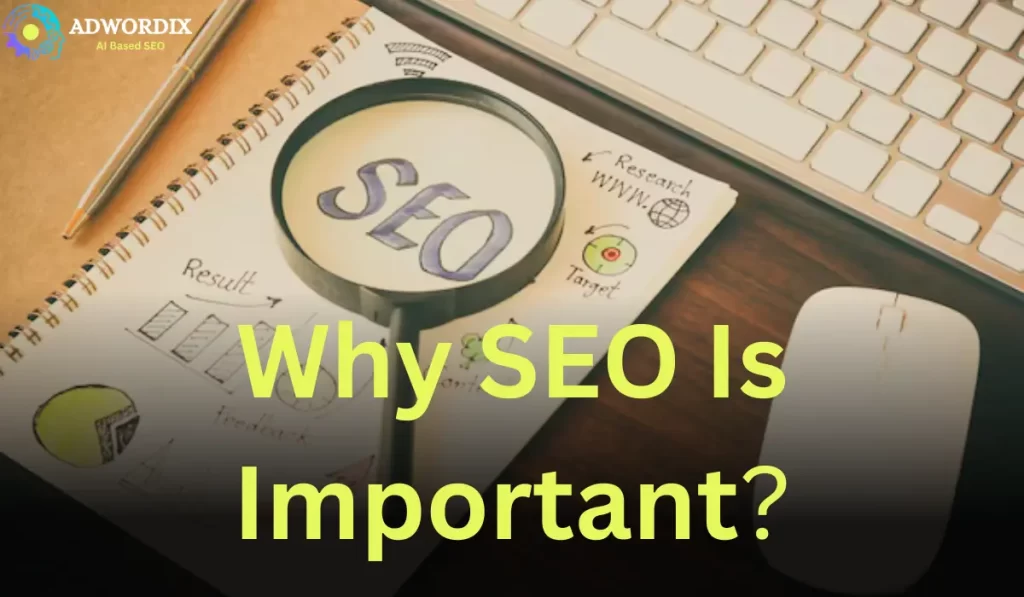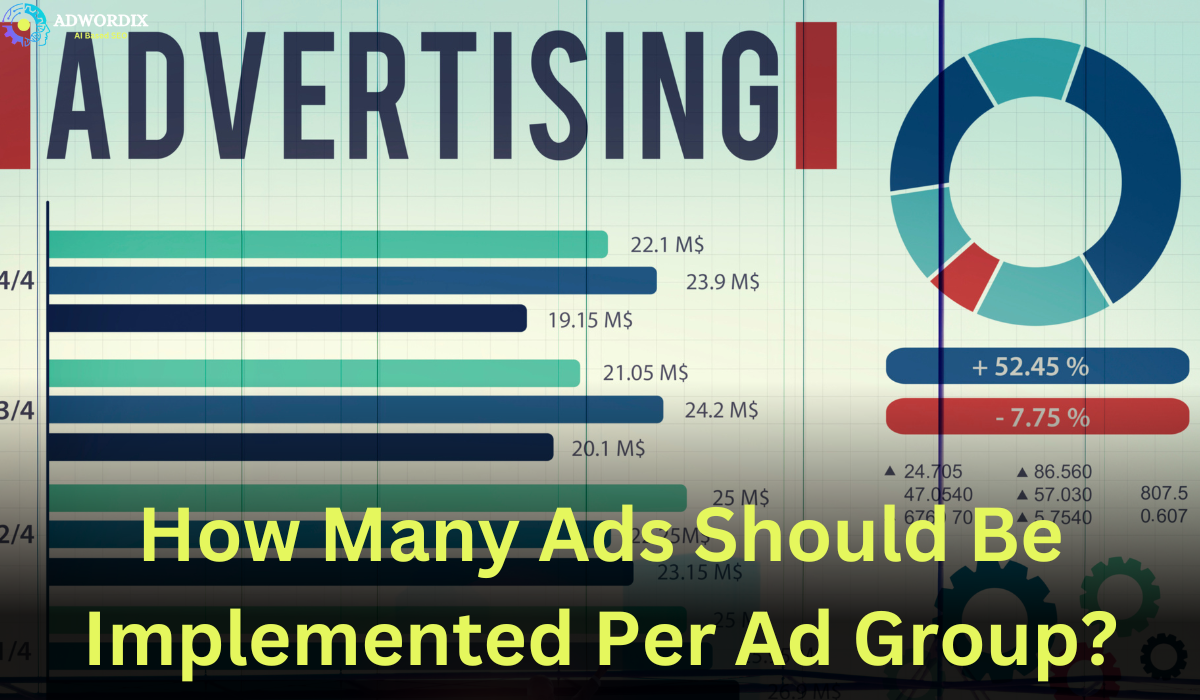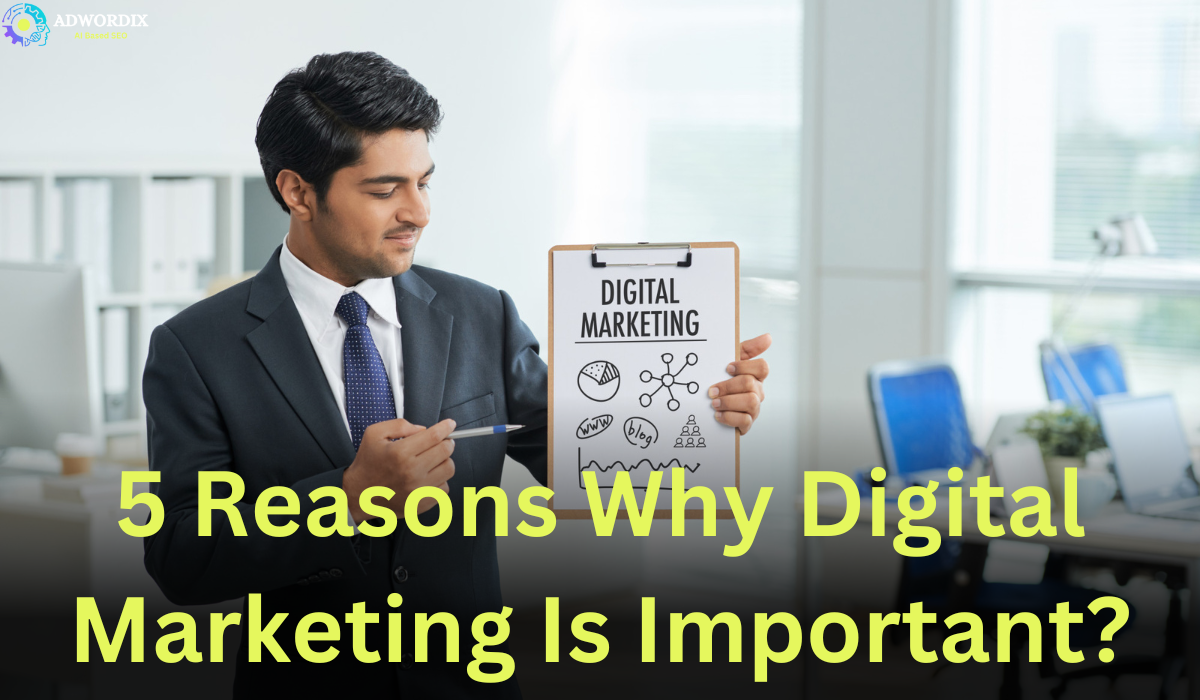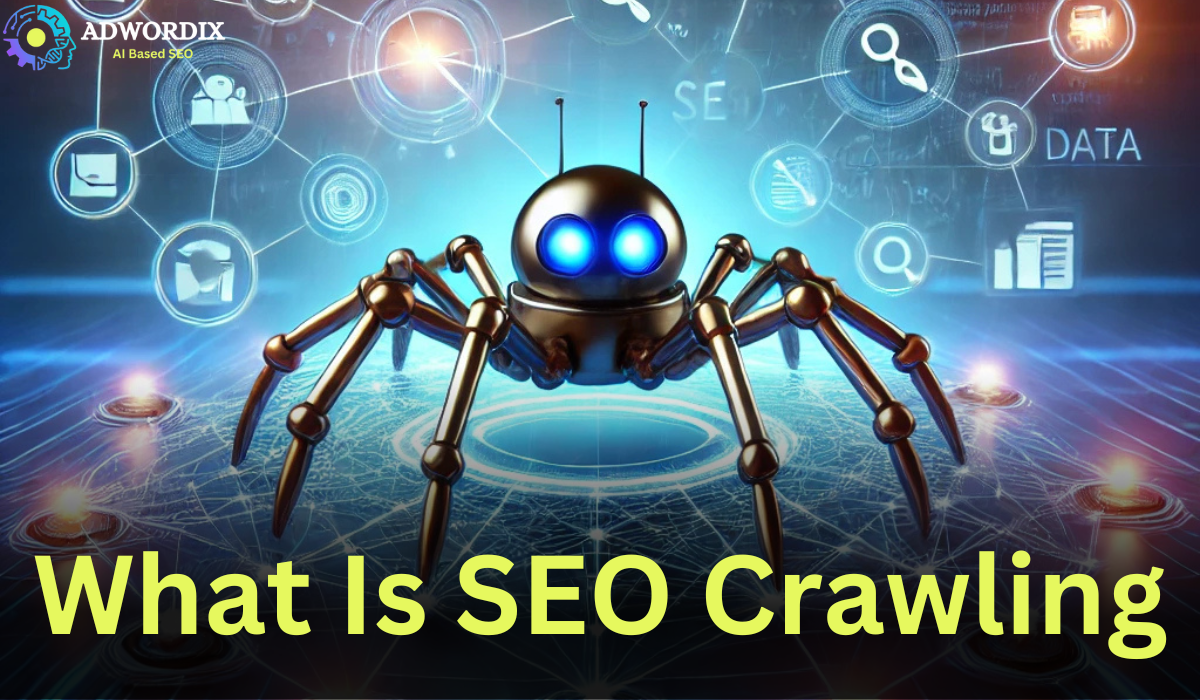An online presence is crucial for organizations of all sizes in the digital era. Utilizing SEO, or search engine optimization, is essential for achieving this. SEO enhances your website’s visibility to potential customers by elevating it in search engine results pages (SERPs). Given that consumers frequently turn to search engines like Google as their initial point of contact when shopping for goods or services, Appearing at the top of these results can enhance your brand’s reach and credibility. Understanding why SEO is essential can help you use this powerful tool to drive organic traffic and grow your business. So first of all, we should know what is SEO.
What is SEO?
SEO is a multifaceted strategy designed to improve your website’s visibility in search engine results. It involves several key components:
- On-page SEO: Includes optimizing individual web pages’ content and HTML source code to be search-engine friendly. Key elements include using relevant keywords, optimizing meta tags, and ensuring high-quality, valuable content.
- Off-page SEO: Focuses on external signals that impact your rankings, such as backlinks from reputable websites. Building a robust backlink profile can significantly enhance your domain authority and, consequently, your search rankings.
- Technical SEO: Technical SEO involves optimizing your website’s backend to facilitate search engine crawling and indexing. Its crucial components include ensuring mobile friendliness, establishing a secure HTTPS connection, and speeding up the website.
Users can locate your website if search engines can better comprehend and rank your content thanks to SEO’s combination of these components.
Why SEO Is Important?
SEO is essential for several reasons. Firstly, it helps your website rank higher on search engines, which increases visibility and attracts more visitors. Higher rankings signal to users that your site is a credible and authoritative source, enhancing your brand’s reputation.
Secondly, SEO drives targeted traffic to your site. SEO provides long-term benefits, unlike paid advertising, where traffic stops when you stop paying. Once your search engine ranking is high, you can continuously attract organic traffic without incurring ongoing costs.
Lastly, SEO enhances the user experience. Good SEO practices, such as optimizing site speed and mobile-friendliness, improve users’ interactions with your site, leading to higher engagement and conversion rates. Investing in SEO ensures that your site meets both search engine criteria and user expectations, driving sustained business growth.
How SEO Works?
SEO aligns your website with search engine criteria to rank pages. Search engines employ algorithms to determine the importance and quality of websites. These algorithms consider various factors:
- Keywords: Keywords are the terms users type into search engines. Using appropriate keywords in your content helps search engines understand what your page is about.
- Content Quality: High-quality, informative, and engaging content is crucial. Search engines favour material that is useful to users, so ensuring your content is well-written and relevant can boost your rankings.
- Backlinks: Search engines interpret backlinks from reliable websites as authority and credibility for your content. Establishing a good number of backlinks can significantly enhance your site’s domain authority.
- User Experience: Site speed, mobile friendliness, and secure connections (HTTPS) are essential. The goal of search engines is to provide users with the best possible experience, so pages that are simple to use and quickly load are ranked higher.
By optimizing these factors, SEO helps improve your site’s visibility and ranking on search engines, making it easier for users to find your content.
Benefits of SEO
- Increased Organic Traffic: One of the primary benefits of SEO is increased organic traffic. SEO yields long-term benefits instead of paid advertising, which calls for ongoing investment. You will not need to pay for continuous traffic once your website appears highly in search results. This organic traffic is very targeted because users are actively looking for information about your products. High rankings drive more traffic and attract users who are more likely to convert into customers, providing a significant boost to your business.
- Cost-Effectiveness: SEO is the most economical marketing technique because it targets people actively looking for your products online. Its inbound nature helps businesses save money instead of outbound strategies like cold-calling. While SEO requires time and resources, it offers a high return on investment (ROI). You can achieve sustained visibility and traffic by consistently optimizing your site and producing quality content without the need for continuous spending, unlike paid advertising campaigns.
- Brand Awareness: Achieving higher rankings in search results lead to increased brand visibility. Websites on the first page of search engine results are more likely to be trusted by users. Users get more familiar with your brand as it appears more frequently in search results, which increases credibility and trust. Because consumers are more likely to interact with a brand they are familiar with and trust; this increased brand awareness may result in higher conversion rates. Over time, consistently high rankings can establish your brand as an authority in your industry.
- User Experience: Good SEO practices go hand-in-hand with improving user experience. Making your website more user-friendly is often part of optimizing it for search engines, as they tend to favour websites that offer an enjoyable experience. This includes improving site speed, ensuring mobile-friendliness, and creating a secure browsing environment. These improvements help with SEO and enhance how users interact with your site, leading to higher engagement, longer visit durations, and increased likelihood of conversions. A well-optimized site provides value to users, which is ultimately what search engines aim to deliver.
- Competitive Advantage: Investing in SEO gives you a competitive edge for businesses that need to optimize their websites. In a highly competitive market, appearing at the top of search results can significantly attract customers. By consistently optimizing your site, creating high-quality material, and establishing a solid backlink profile, you outperform competitors who need more than paid advertising or outdated marketing tactics. Staying ahead of SEO trends and adapting to algorithmic increases ensures your business remains competitive in the digital landscape.
Practical SEO Tips
To effectively leverage SEO, it’s essential to follow the best practices:
- Perform keyword research: Use tools like SEMrush or Google Keyword Planner to uncover suitable keywords for your sector. Pay attention to highly targeted but less competitive long-tail keywords.
- Optimize On-Page Elements: Optimize your headers, photos, titles, and meta descriptions with relevant keywords. This facilitates search engines’ understanding of your pages’ content and relevancy.
- High-quality content creation: Consistently provide your audience with engaging, educational, and valuable content. By creating shared and linked content, you can increase the visibility of your SEO efforts.
- Build Quality Backlinks: Seek backlinks from reputable websites in your industry. Guest blogging, collaborations, and creating shareable content can help build a strong backlink profile.
- Ensure Mobile-Friendliness and Fast Loading Times: Optimize your website for mobile users and ensure it loads quickly. Google prioritizes mobile-friendly sites and fast-loading pages in its rankings.
Implementing these practical tips can improve your website’s SEO, visibility, and traffic.
Standard SEO Mistakes to Avoid
Avoiding common SEO mistakes is crucial to maintaining effective SEO strategies.
- Keyword Stuffing: Incorporating too many keywords in your writing will make reading harder for readers and will not improve the user experience. Make an effort to incorporate keywords into your writing naturally.
- Ignoring Mobile Optimization: Your website must be mobile-friendly because mobile devices account for most of the internet traffic. Google also uses mobile-first indexing, making this a critical aspect of SEO.
- Poor-Quality Content: Low-quality, irrelevant content can harm your SEO efforts. Creating informative, interesting content that caters to your audience’s needs should always come first.
- Not Using Analytics: You need to analyze your SEO performance with tools like Google Analytics to know what’s working and what’s not. Frequently monitor and adjust your strategies based on data and insights.
You’ll ensure your SEO efforts are effective and sustainable by preventing these errors.
Conclusion
SEO is indispensable for any business looking to grow its online presence. Understanding and implementing effective SEO strategies can drive more organic traffic, increase brand visibility, and enhance your website’s credibility. Long-term advantages of SEO include improved user experience and cost-effectiveness, making it an investment worth making for enduring business success. Start optimizing your website today and consider consulting with an SEO agency to maximize your results for those looking deeper into SEO. Remember that maintaining and raising your search engine rankings depends on ongoing education and staying current with emerging practices.





